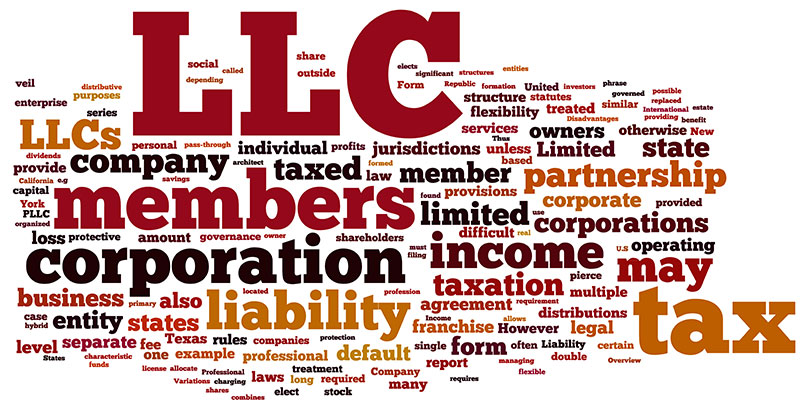Which Incorporation is Right For Your Business?
Have you considered starting a business? If so which form of incorporation should you choose, a “C Corp.”, “S Corp.”, “Partnership”, an “LLC”?
During this season of preparing corporate returns, I have met with several individuals who incorporated through legal websites, and attorneys, who, may have not adequately interviewed the business owner regarding the best corporation entity as it pertains to that client’s objectives, goals, and tax consequence.
Types of Business Entities
The type of business entity you choose will depend on three primary factors: liability, taxation and record-keeping. Here’s a quick look at the differences between the most common forms of business entities:
A sole proprietorship is the most common form of business organization. It’s easy to form and offers complete managerial control to the owner. However, the owner is also personally liable for all financial obligations of the business.
A partnership involves two or more people who agree to share in the profits or losses of a business. A primary advantage is that the partnership does not bear the tax burden of profits or the benefit of losses-profits or losses are “passed through” to partners to report on their individual income tax returns. A primary disadvantage is liability-each partner is personally liable for the financial obligations of the business.
A corporation is a legal entity that is created to conduct business. The corporation becomes an entity-separate from those who founded it-that handles the responsibilities of the organization. Like a person, the corporation can be taxed and can be held legally liable for its actions. The corporation can also make a profit. The key benefit of corporate status is the avoidance of personal liability. The primary disadvantage is the cost to form a corporation and the extensive record-keeping that’s required. While double taxation is sometimes mentioned as a drawback to incorporation, the S corporation (or Subchapter corporation, a popular variation of the regular C corporation) avoids this situation by allowing income or losses to be passed through on individual tax returns, similar to a partnership.
A hybrid form of partnership, the limited liability company (LLC) , is gaining in popularity because it allows owners to take advantage of the benefits of both the corporation and partnership forms of business. The advantages of this business format are that profits and losses can be passed through to owners without taxation of the business itself while owners are shielded from personal liability.
If you are considering incorporating your business, contact an accountant and discuss your objectives for that business. You may know your business, but there is also the consequence of the “business of the business”.
Source: Entrepreneur.com






